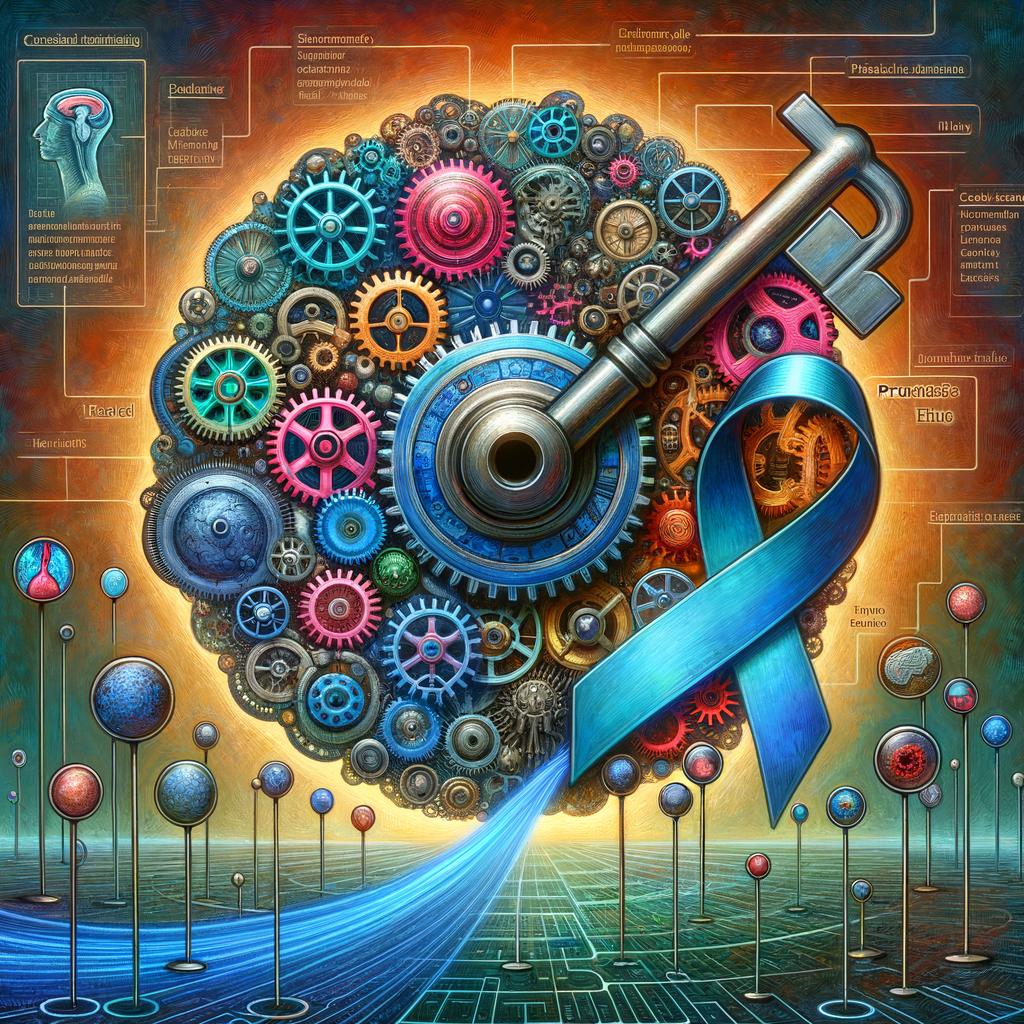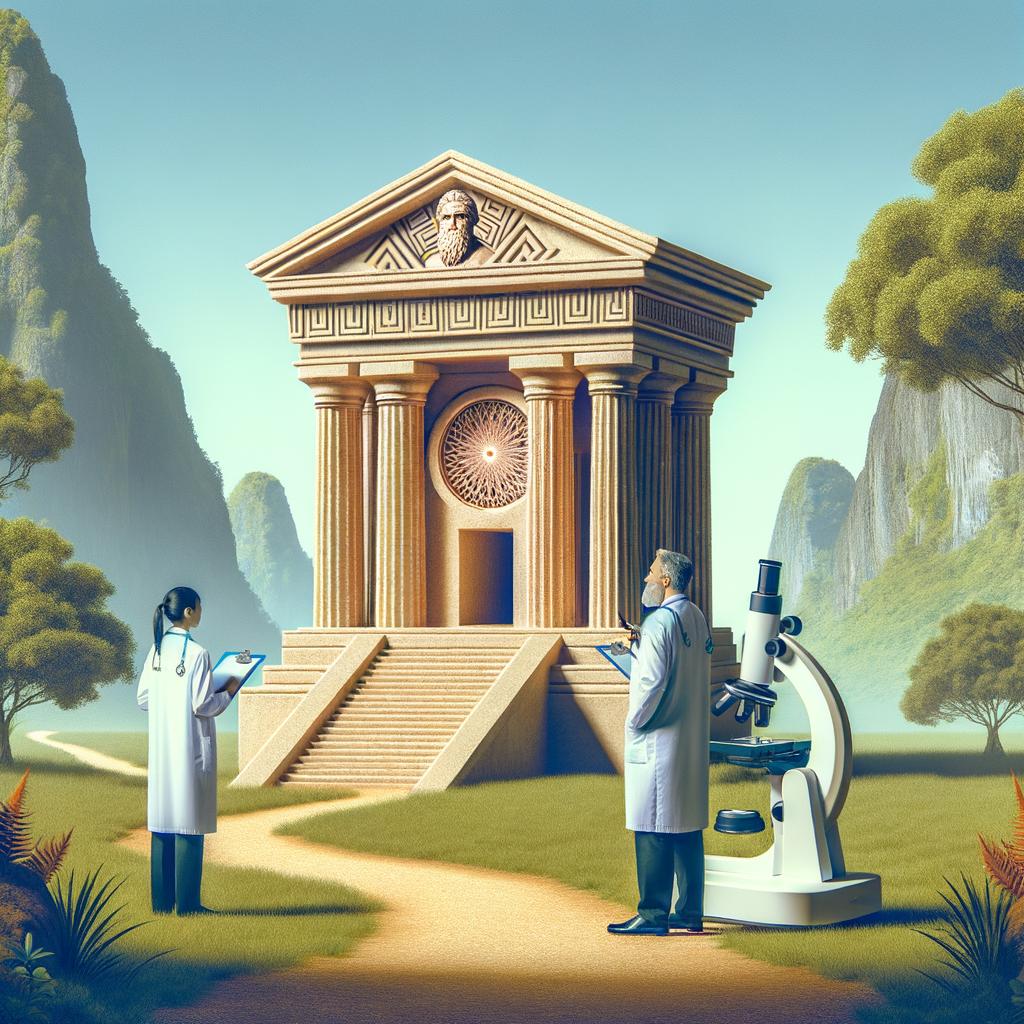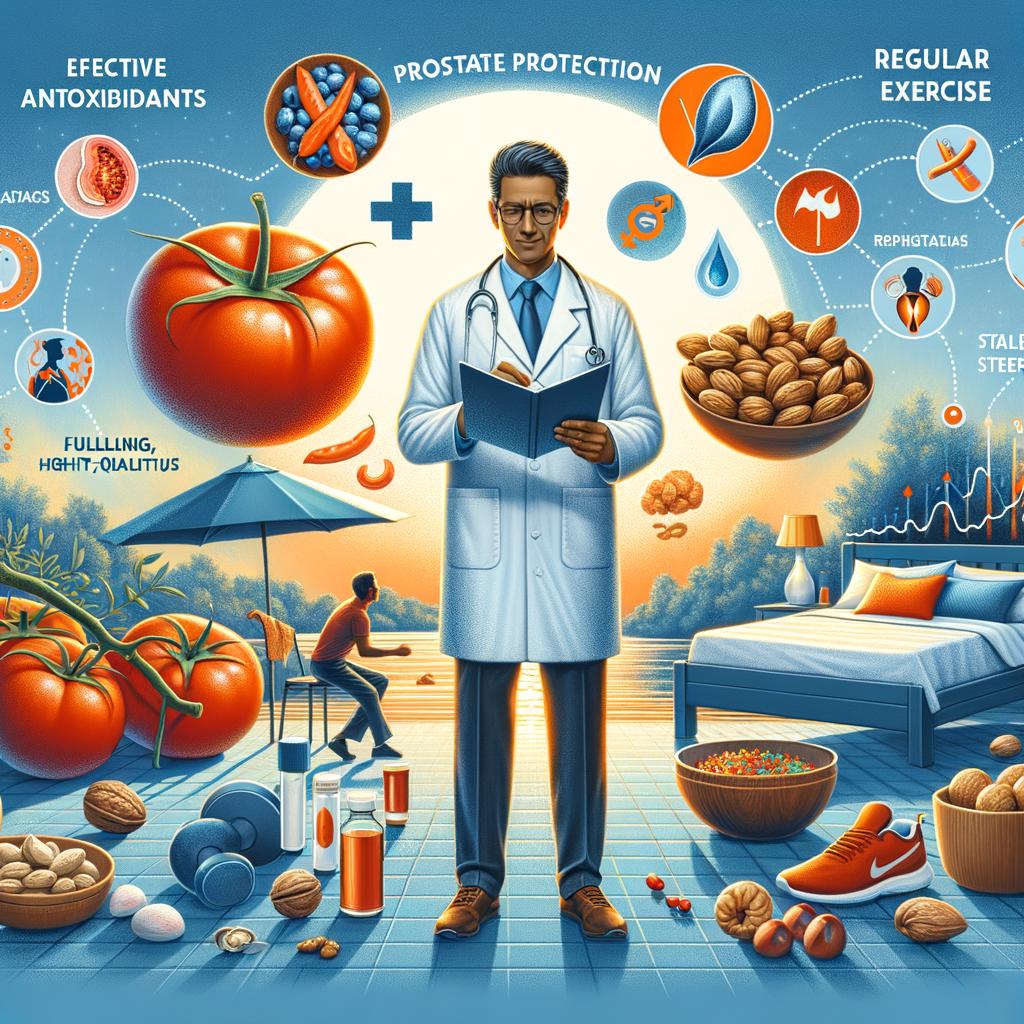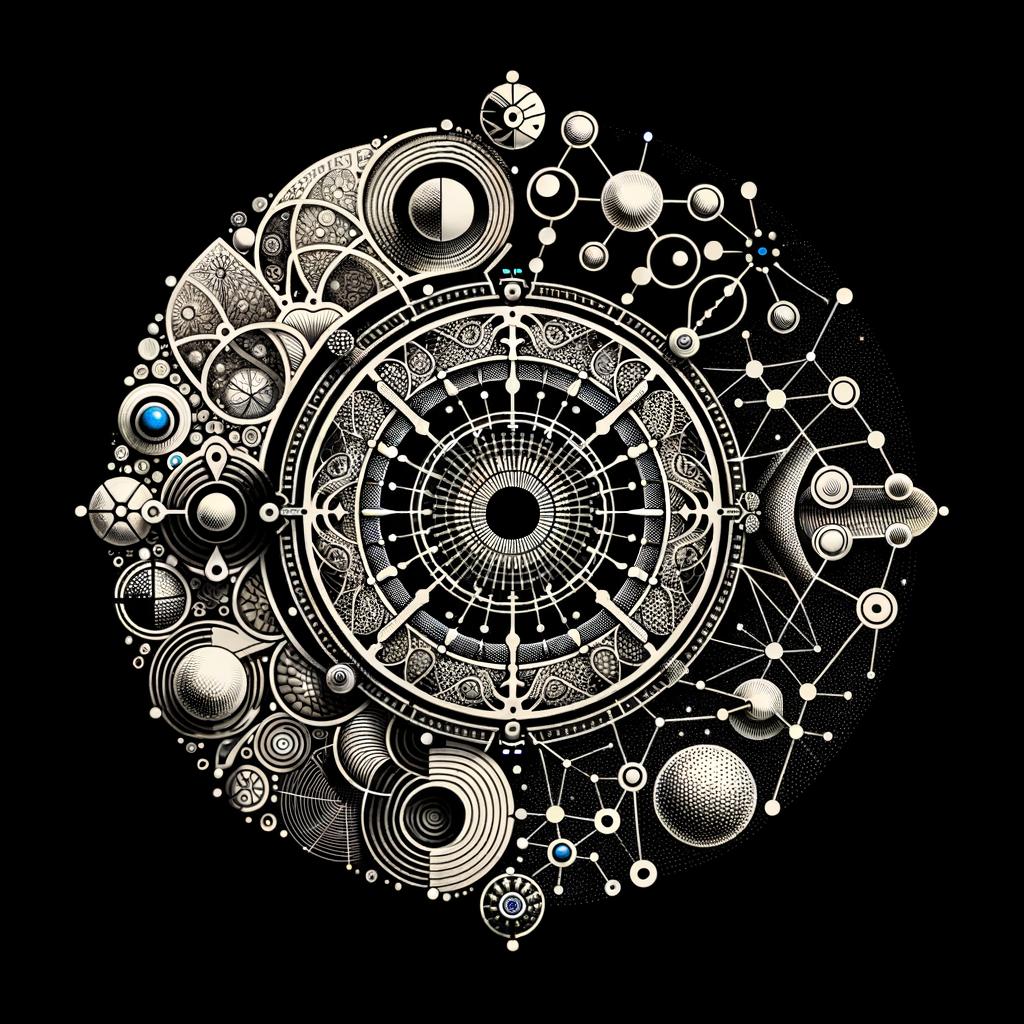In a world filled with captivating enigmas, one mysterious guardian stands shrouded in secrecy, silently fulfilling its duty to safeguard our well-being. The hidden sentinel we speak of, the enigmatic prostate, is a formidable force within the male anatomy, yet often overlooked and misunderstood. Beyond its mere association with late-night television advertisements and hushed whispers, this peculiar organ deserves a closer examination. Join us as we embark on a journey into the depths of the male body, unravelling the mysteries that cloak the hidden guardian, and shedding light on the profound impact it holds on our lives. Brace yourself for an exploration that will challenge conventions, enlighten minds, and forever change our perception of this intriguing prostate phenomenon.
Table of Contents
- Understanding the Prostate: A Mysterious Organ Shrouded in Secrecy
- Unraveling the Enigma: Key Insights into Prostate Health and Function
- Guarding the Guardian: Essential Recommendations for Prostate Care and Maintenance
- Prostate Protection: Unveiling Effective Strategies for a Healthy Life
- Q&A
- In Summary

Understanding the Prostate: A Mysterious Organ Shrouded in Secrecy
The prostate—a walnut-sized gland situated just below a man’s bladder—emerges as an organ shrouded in mystery amidst its routine functionality. Most men are aware of its existence during their health check-ups but do not have an intricate understanding of its core responsibilities. Essentially, the prostate has two primary duties: secreting fluid that nourishes and safeguards sperm, and aiding in urine control. It’s imperative to demystify this enigmatic gland, as the key to understanding certain male-specific health conditions lies within this humble organ.
Let’s dive into the vital functions that the prostate undertakes for a man’s health. The prostate gland secretes a substance that makes up about 30% of the total fluid that is ejaculated during intercourse. This fluid plays a critical role in a man’s fertility as it contains enzymes, zinc, and citric acid which are essential for the survival and functionality of sperm. In being a gatekeeper of sorts for the urinary system, it helps in urine control. This gland has smooth muscles that aid in expelling semen during ejaculation, thereby playing a significant role in reproductive health. To understand its structure and significance further, consider the following table depicting its main components:
| Prostate Gland | Function |
|---|---|
| Prostatic Fluid | Nourishes and protects sperm |
| Smooth Muscles | Helps in pushing out semen during ejaculation |
| Urethra | Responsible for urine control |
As the hidden guardian of men’s health, the prostate warrants attention so that potential issues such as prostatitis, enlarged prostate, or prostate cancer can be detected early. As such, understanding the prostate isn’t just academic interest—it’s a vital part of men’s health management.

Unraveling the Enigma: Key Insights into Prostate Health and Function
In the intricate labyrinth that is the male reproductive system, the prostate gland often remains an enigma. Nestled deep within, it plays a pivotal role in several crucial functions such as sperm nutrition and lubrication for sexual intercourse. Now, let’s delve a bit deeper and elucidate the different aspects of its structure and functions.
The prostate is roughly the size of a walnut, encircling the tube that carries urine from the bladder. It secretes a slightly alkaline fluid, which forms about 30% of the seminal fluid that carries sperm. In addition to these, the gland is also imbued with muscle fibers that assist in propelling the fluid during an ejaculation.
In order to comprehend the complexities of prostate health, we must take into consideration two significant facets: prostatitis and prostate cancer. Prostatitis is essentially an inflammation of the prostate, most commonly caused by bacterial infection and can be profoundly uncomfortable.
| Disease | Description |
|---|---|
| Prostatitis | An inflammation of the prostate, it can robustly disrupt the day-to-day activities, causing discomfort and difficulty in urination. |
| Prostate Cancer | It is the second most common form of cancer found in males. Often, it grows slowly and initially remains confined to the prostate, but can spread if not detected on-time. |
Prostate cancer is a little more ominous, often showing no symptoms in the early stages. While it is the second most common form of cancer among men, it is important to note that most men diagnosed with prostate cancer do not die from it. Early detection, enhanced by regular PSA screenings, can facilitate effective management and treatment.
- PSA (Prostate-Specific Antigen) is a substance your prostate makes. This level may go up if you have prostate cancer, prostatitis, or an enlarged prostate.
- Regular digital rectal exams (DRE) can detect any abnormalities in the size, shape, and texture of the gland.
Taking care of prostate health is crucial not just for the wellbeing of the reproductive system, but the overall health of the individual. Awareness, regular screening, and healthy lifestyle are imperative for maintaining prostate health.

Guarding the Guardian: Essential Recommendations for Prostate Care and Maintenance
The prostate gland, while small and often unacknowledged, plays a crucial role in the robustness of male reproductive and urinary health. Yet, as significant as it may be, many of us overlook the need for regular prostate health check-ups and maintenance. The tips provided below shed light on simple yet effective ways to ensure this hidden guardian remains healthy and functioning optimally.
Healthy Eating: A nutritious and balanced diet is vital not just for your overall health, but for your prostate too.
- Favour foods like fruits, vegetables, whole grains and lean proteins.
- Avoid processed foods and those high in saturated and trans fats.
- Try to consume green tea and foods abundant in lycopene, such as tomatoes, which have been shown to bolster prostate health.
Physical Exercise: Regular exercise plays a central part in managing the health of your prostate.
- Aim for a minimum of 30 minutes of moderate physical activity most days of the week.
- Maintaining a healthy weight can reduce the risk of developing issues related to the prostate gland.
| Prostate Health Supplements | Benefits |
|---|---|
| Saw Palmetto | Can ease urinary symptoms associated with an enlarged prostate. |
| Pumpkin Seeds | Rich in antioxidants and a favourable source of beneficial fats. |
| Pygeum | Promotes healthy urination. |
Finally, regular medical screenings and discussions with a healthcare professional about your prostate health become increasingly critical as you age, especially if you have a family history of prostate problems. Incorporate these habits into your routine and you can stand guard over your guardian in turn.

Prostate Protection: Unveiling Effective Strategies for a Healthy Life
Our prostate is a small gland not much larger than a walnut, quietly performing its duty in the reproductive system. Overlooked and underappreciated, most men remain blissfully unaware of its existence until problems arise. But taking preventative steps towards its care is a crucial part of maintaining overall health. With that in mind, let’s explore some effective strategies on how to protect your prostate and ensure a healthier life.
First on the list would be Diet. A rich diet of fruits, vegetables, and healthy fats is highly beneficial. Lycopene, found abundantly in tomatoes, has been identified as a potent antioxidant that may reduce your prostate cancer risk. Besides, it is always wise to limit the intake of dairy products and red meat, both of which may lead to prostate problems. On the other hand, Regular Exercise certainly deserves equal emphasis. A well-developed exercise routine can help maintain a healthy weight, which invariably reduces the chances of prostate cancer. Just ensure you pick an activity that you enjoy doing, and stick with it.
Adding a Regular Screening to your health check-ups is another smart move. Early detection is key to any disease and it is no different for your prostate. A regular prostate-specific antigen (PSA) blood test can catch any signs of cancer early, improving your chances for successful treatment.
| Diet Recommendations | Exercise Routines | Screening Measures |
|---|---|---|
| Increased Fruits & Vegetables Intake | Cardiovascular Exercises | Annual PSA Tests |
| Limit Dairy Products & Red Meat | Strength Training | Urine Tests |
Lastly, a clean lifestyle can tip the scale in your favour. Limiting alcohol, avoiding tobacco Abstinence from Harmful Substances, and maintaining a stress-free state of mind can keep your prostate gland thanking you for years to come. Remember, it’s not just about living longer; it’s about living stronger while you’re at it!
Q&A
Q: What is the prostate and why is it called the “hidden guardian”?
A: Ah, the noble prostate, a mysterious organ that resides within the male body. Often referred to as the “hidden guardian,” it plays a crucial role in male reproductive health. This small, walnut-sized gland is nestled deep within the pelvis, hidden from plain sight.
Q: What are the functions of the prostate?
A: The prostate has a few remarkable roles to play. It produces a fluid that nourishes and protects sperm, ensuring their survival during the journey to fertilize the egg. This fluid also constitutes a significant portion of semen, helping it to traverse through its intended path with ease. Additionally, the prostate has valves that prevent urine from mixing with semen, avoiding any unwanted complications.
Q: Are there any common prostate health concerns that men should be aware of?
A: Unfortunately, the prostate is not exempt from potential health issues. As men age, the risk of developing prostate conditions such as benign prostatic hyperplasia (BPH) or prostate cancer increases. BPH can cause difficulties in urination, while prostate cancer, although often slow-growing, can have severe consequences if left untreated. Regular check-ups and open discussions with healthcare professionals are vital to monitor and address any concerns.
Q: Could you shed some light on the signs and symptoms of prostate problems?
A: Certainly! When it comes to warning signs, it’s important to be attentive. Frequent urination, weak urine flow, difficulty starting or stopping urine, blood in the urine or semen, and pain or discomfort in the pelvic region are some red flags that might indicate prostate-related issues. However, these symptoms may also be caused by other conditions, so seeking medical advice is crucial for a proper diagnosis.
Q: What measures can men take to maintain a healthy prostate?
A: Protecting and maintaining the health of our enigmatic guardian is just as important as unlocking its secrets. Engaging in regular physical exercise, maintaining a balanced diet rich in fruits and vegetables, managing stress levels, and avoiding excessive consumption of alcohol and tobacco are recognized as beneficial practices for prostate health. Additionally, it is advisable for men over 50 to undergo regular prostate screenings to ensure early identification of any potential problems.
Q: Is it true that sexual activity can contribute to the health of the prostate?
A: Ah, the rumors surrounding this subject have intrigued many. While it has been suggested that ejaculating regularly may have a positive impact on prostate health, more research is needed to establish a definitive link. However, enjoying a healthy and active sex life can contribute to overall well-being and satisfaction, so it’s a win-win situation!
Q: What advice would you give to men who are anxious about prostate health?
A: It’s completely natural to feel concerned about one’s health, especially when it comes to the hidden guardian. The best advice we can offer is to educate yourself about prostate health, maintain open communication with your healthcare provider, and adhere to recommended screening guidelines. This proactive approach ensures that any potential issues are caught early, providing peace of mind and the potential for better outcomes.
Q: In summary, what do we need to know about the enigmatic prostate?
A: The enigmatic prostate is a tiny but mighty organ that serves as a guardian of male reproductive health. Understanding its functions and potential health concerns is crucial for men of all ages. By embracing a healthy lifestyle, seeking regular medical check-ups, and being attuned to any warning signs, we can navigate the mysteries of the prostate with confidence and ensure its hidden powers are protected for years to come. So, let’s unravel the enigma and give our hidden guardian the attention it deserves!
In Summary
As we bid adieu to the mysterious realm of the enigmatic prostate, we find ourselves marveling at the intricate web of secrets this hidden guardian holds. While it may remain concealed within the depths of the male anatomy, its importance cannot be overlooked. From safeguarding our urinary system to playing a vital role in reproduction, the prostate’s existence is a testament to the wonders of the human body.
As we peel back the layers of complexity, we uncover an organ that has captured the curiosity of scientists and researchers for centuries. Its size may be small, but its influence on our health is undeniably colossal.
The mysteries surrounding this guardian come with an array of questions, each awaiting thoughtful answers. How does this gland grow and evolve? What triggers its relentless expansion, often leading to medical complications? And perhaps most intriguingly, what secrets lay hidden within its cells that may hold the key to understanding serious ailments that plague countless individuals?
Yet, as we navigate through the labyrinthine intricacies, we approach these enigmas with a neutral gaze. We must tread carefully, embracing the understanding that lies at the intersection of curiosity and respect. For while we journey into uncharted territories, unraveling the hidden guardianship of the prostate, we must bear in mind the delicate balance between exploration and reverence.
The enigmatic prostate, shrouded in secrets and yet performing its duties silently, continues to be a testament to the ancient wisdom of the human body. Embracing our role as seekers of knowledge, we celebrate the profound beauty that lies within this intricate guardian. As we bid farewell to the exhilarating journey we embarked upon, we cannot help but marvel at the ever-evolving tapestry that is the human body, forever concealing its marvels beneath layers of enigma and wonder.


